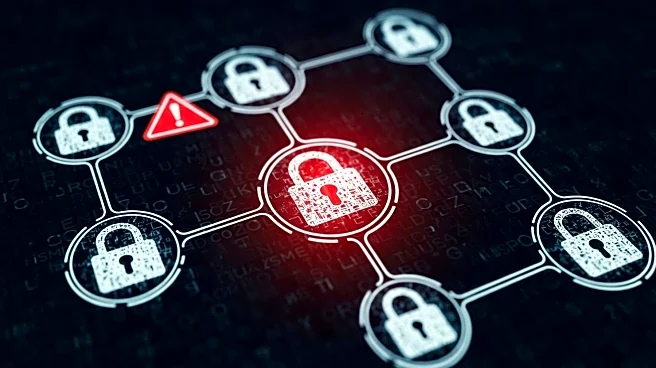What's Happening?
The Department for Science, Innovation and Technology (DSIT) has conducted specialized tests to assess the capabilities of artificial intelligence models in launching and coordinating automated cyberattacks. This initiative involved a contract with Rethink Priorities, a California-based think tank, to run 'capture the flag' exercises. These exercises are designed to test the ability of systems to identify hidden vulnerabilities in software programs or websites. The contract, valued at just under £1 million, ran for up to six months. Despite potential benefits for attackers, DSIT's research indicates skepticism among cyber red teams regarding AI's impact on improving cyber defenses.
Why It's Important?
The tests conducted by DSIT highlight the growing interest in understanding AI's role in cybersecurity, particularly its potential to automate cyberattacks. This development is significant for U.S. industries and public policy as it underscores the need for robust cybersecurity measures to protect against increasingly sophisticated threats. The skepticism from cyber red teams suggests that while AI may enhance offensive capabilities, its defensive applications remain uncertain. This could influence future investments in cybersecurity technologies and strategies, impacting businesses and government agencies reliant on digital infrastructure.
What's Next?
The results of these tests may prompt further research into AI's capabilities in cybersecurity, potentially leading to new policies or regulations to address emerging threats. Stakeholders, including technology companies and government agencies, may need to reassess their cybersecurity strategies to incorporate AI-driven solutions. Additionally, there could be increased collaboration between public and private sectors to develop more effective defenses against AI-coordinated cyberattacks.
Beyond the Headlines
The ethical implications of using AI for cyberattacks are profound, raising questions about accountability and the potential for misuse. As AI technology advances, there may be calls for international agreements to regulate its use in cybersecurity, similar to existing arms control treaties. This could lead to long-term shifts in how nations approach cybersecurity and the development of global standards for AI applications.











